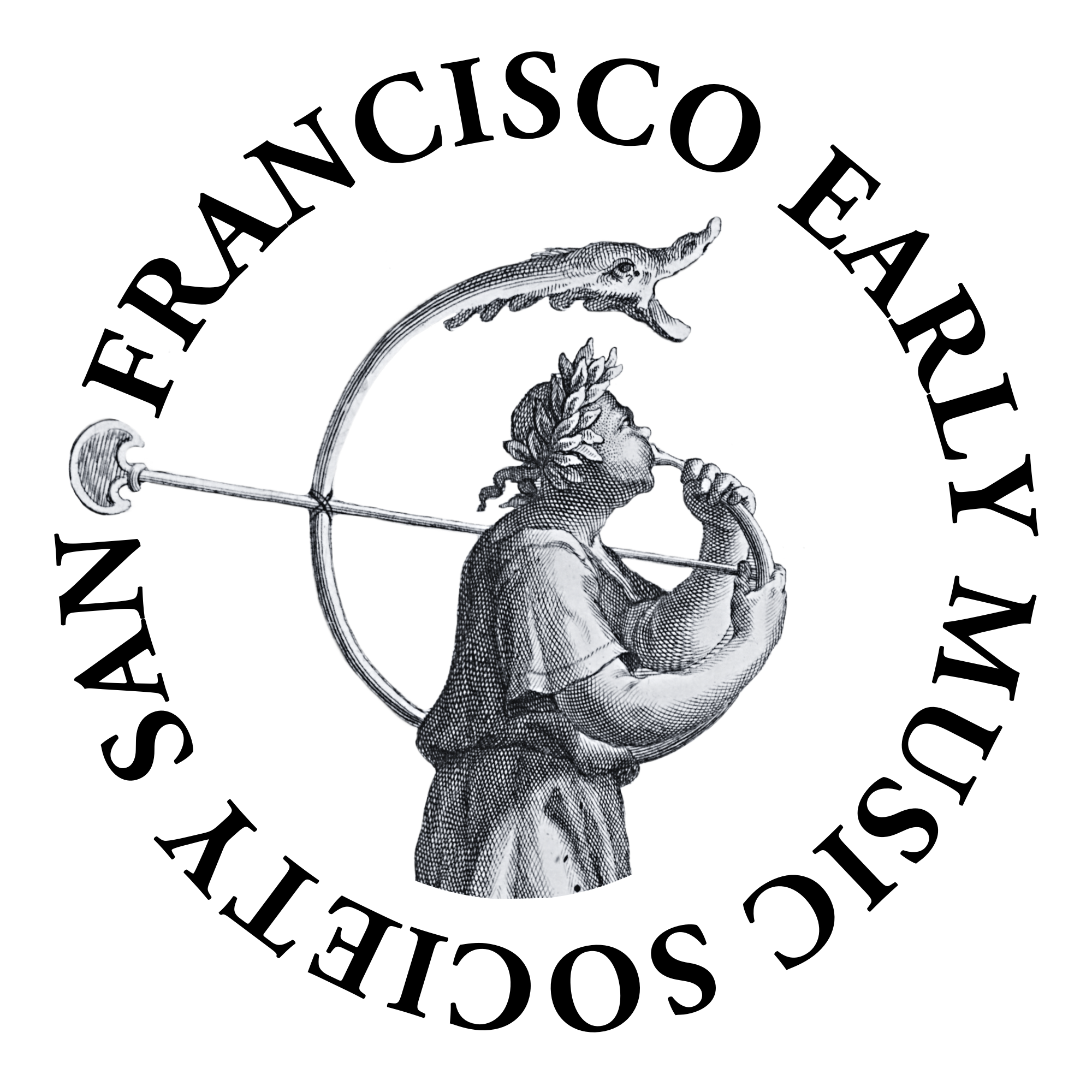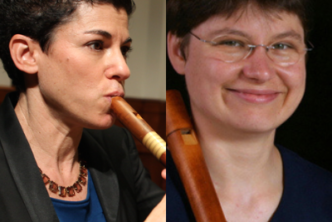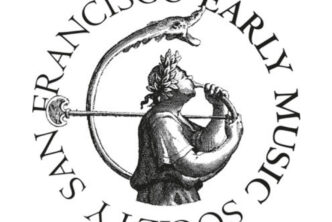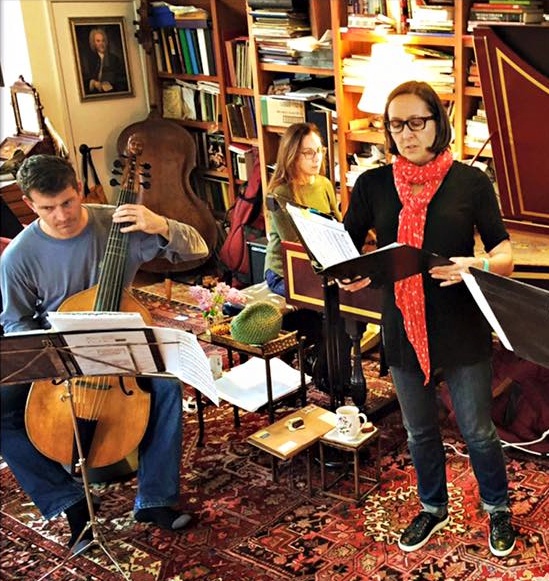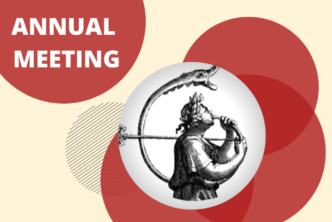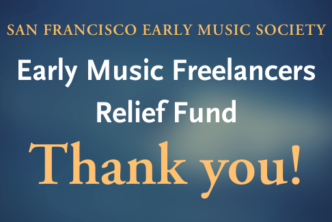[From the archives. A version of this article appeared in the January 2003 issue of the Early Music News.]
Howard Kadis Discusses the Future of the Musical Offering
If Berkeley’s Musical Offering is indeed the last independent classical CD store in the US, there is little disagreement that it is worthy of the honor. At least since the late 1980s, when the late Joseph Spencer became proprietor, the MO has been an acknowledged leader in classical recordings and a Mecca for early music fans in particular.
At the time of Joseph’s death 13 months ago, the outlook for the store seemed uncertain at best. However, through the continued support of its surviving partners (who also own the adjacent University Press Books) and Joseph’s widow, Jean, as well as the dedication of MO staff, it is continuing, and at least its immediate future seems assured.
A central figure in this re-dedication has been Howard Kadis, who became a partner in the Musical Offering last April and is its new proprietor/general manager. A Bay Area native, Howard was trained at Cal State Hayward and the San Francisco Conservatory and is a professional performer on classical guitar, lute and mandolin. Most recently he played theorbo as part of the continuo group in the San Francisco Opera’s production of Handel’s Alcina.
In the following interview, Howard Kadis discusses the classical recording business and the future of the Musical Offering.
EMN: How did you become involved with the Musical Offering, and what were your reasons for wanting to become manager.
HK: I had worked here for three and a half years in the late 1990s, essentially running the record counter, and I enjoyed it. But when Joseph became ill, I felt the store lost some of its direction, and I felt it needed someone with the same vision he had, which I think I share. Also, at the risk of getting a little political, I feel this is me putting my money where my mouth is. The independent business is absolutely the backbone of the American economy. If independent businesses begin to fail and we are taken over by large, centralized corporate culture, the dangers to our economy and our own security and livelihoods increase greatly. It’s much harder to break an economy whose strength lies in its diversity. So that’s why I want to be involved in an independent business, especially one dedicated to classical music and specifically early music, because that’s where I have my greatest interest and love.
EMN: Can you elaborate on what Joseph’s vision was?
HK: Well, when I first came here I saw it as a collection of three separate elements—and I’m sure this is how he saw it too: the record store, the café, and Wild Boar Records. Joseph was kind of a self-appointed arbiter of taste and quality, and he had a very good ear. He knew what was the good stuff, the not-so-good stuff and the stuff that was out-and-out crap (there is, unfortunately, a certain amount of that out there). That’s the kind of vision that I would like to try to continue—to make sure that we carry not only the broadest possible spectrum of classical recordings, but the broadest possible selection of really high-quality classical recordings, and especially of early music.
EMN: What are the main challenges facing the store right now?
HK: Well, certainly all independent businesses face challenges in the present economy. The market forces are pulling in all kinds of directions. Add to that the steady decline in the market for classical recordings that has been going on for a number of years; it’s not falling off sharply, just going down a gentle slope, and it’s been doing this since at least 1996, when I started working here. Part of this is being fed by the record companies themselves, especially the big companies, who don’t seem to know how to treat a classical title. They will put a classical title in print, run a fixed number, whatever that is, sell them out, and then take the title out of print. I think they can’t see the difference between a classical title and a popular title. A popular title makes all of its money up front, in the first few months after release, and then falls of sharply after that initial spike. In the old LP days, classical titles would stay in print for 20 years or more, and companies made money by selling them in modest quantities over that period. What the new approach has meant is that some remarkable recordings and very important performances are unavailable now.
I’ll give you an example. We have this stunning recording of Pergolesi’s Stabat Mater that was done years ago by Christopher Hogwood with James Bowman and Emma Kirkby, and it’s just meltingly beautiful. I’ve heard a number of other recordings, and to my ear none of them is up to that standard, but it’s been out of print for five years; you can’t get it. We have a play copy, and every time we put it on people come up to the counter and want to buy it. And we have to say, “sorry; you can buy the work, but …” Another of my all-time favorite early music CDs was Una Stravaganza de Medici, Andrew Parrott’s recording of La Pelegrina, the intermedii for Isabella d’Este’s wedding celebrations. That is a fabulous recording. Of course it’s entirely unavailable now.
Another factor is that classical music is dying on the radio. We have one classical station left in the Bay Area. So increasingly, the major challenge we’re facing is just getting the customers in the door.
EMN: Well, that’s one of the good things about having the café right across from the University. It always seems like there are people in there, eating, talking, hanging out. It’s a nice, somewhat more mature alternative to the more frenetic places on Telegraph Avenue.
HK: And embedded in what you say is another telling point. We cater to an older crowd, and our customer base keeps getting older. So one of the most serious challenges is turning on a younger generation to this music. There are plenty of really exciting things that are happening in classical music that people are unaware of, in part because we’re not doing a good enough job of teaching about classical music in the schools, so young people don’t know it’s there. I’ve been teaching guitar to middle school age students up at Cazadero for the past few summers. Each year I take up a huge collection of CDs, and there are certain things that always grab them. Il Giardino Armonico playing Vivaldi’s “La Follia” variations, for instance. They just light that piece on fire. Another one that really grabs them is The Rare Fruits Council’s recording of Biber’s Armonia Arificioso (his violin pieces in scordatura tuning). It really rocks—especially the first sonata! You put it on, even for 14-year old kids who know nothing about classical music, and their jaws drop open. Bach keyboard concertos in a really compelling performance can do that too; and there are many others. But we need to find a way to turn people on to this stuff, to let their tastes blossom—which you can’t do if you never introduce them to it in the first place. So to go back to what I was saying before, getting people in the door is 80% of the battle; once they’re here, it’s obvious how good the music is.
EMN: Given the state of classical music and the challenges the industry is throwing in all our faces, how is the store adapting?
HK: Well, we have to ride along with the currents. We complain a lot about what they’re doing to us. In some ways we try to adapt by shifting emphases from one thing to another. If the standard classical catalogue is being gutted and many recordings become unavailable, there are any number of recordings of compelling literature that you might not be familiar with in other places that we might expand on. For instance, there are not many stores where you could find sections devoted to Polish or Mexican baroque music, some of which is pretty amazing stuff. We want to keep a diversity of stock at a certain level, and if recordings in one area aren’t available, then we find recordings in other areas that are worth your attention, always remembering that there are certain staples that we must have. We have to have whatever good recordings are available of the St. Matthew Passion or the Mozart Requiem. We have to have a broad selection of Beethoven symphony recordings, and a broad spectrum of Mozart in general. And of course Bach is a huge section. But we also need things like that recording of Biber—things we think that you should know about.
EMN: What do you think the MO offers that’s unique?
HK: So far as I know, we are the last independent Classical CD store in the country. Isn’t that something!? At least we can’t find another one. There was one in Ann Arbor, Michigan for a time, but they closed a few years back. It gives you some sense of the state of classical music. We carry broad selection of recordings, with an emphasis on those we think are most worthy of your attention, and we have knowledgeable people working here. We insist on that. And I mean knowledgeable not only about what we have in the store but about music in general and classical music. And trust me, no matter how much you know when you come in, you’ll learn something here. You never run out of things to learn. I don’t know whether you noticed, but we have a copy of Grove’s [Dictionary of Music and Musicians], behind the counter. Our commitment to serving customers is something we place great emphasis on, and it’s something you don’t get at most stores. Some of the others are well stocked—credit where credit is due—but oftentimes there’s no one around to answer your questions. Here, there’s always somebody who can help you.

